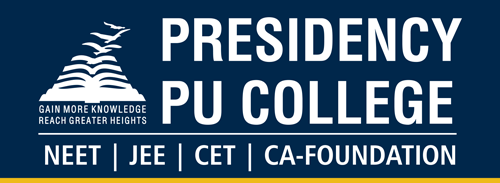June 23, 2021
Career Options After PUC Science: The Complete Guide

Science never fails to provide the most fascinating and enthralling career options for students. After 12th grade or PUC, students don’t just have access to the jobs with the highest demand over the next decade, they also have the choice of picking non-technical fields such as courses in Commerce and Humanities.
Furthermore, science is an incredibly vast field with numerous branches. You can choose from natural sciences (Physics, Chemistry, Biology), formal sciences (Mathematics, Theoretical Computer Science, Logic), Engineering, Medicine, and even more advanced branches like Data Science, Robotics, and Blockchain.
Gone are the days when becoming a doctor or engineering were the only career options for science students to pursue. New age jobs are often overshadowed or viewed as economically unreliable, leading large numbers of aspirants to get into the same rat races.
There is absolutely no reason to be overwhelmed by this. You have reached the only career guide you need to nudge you in the right direction一 here is a guide on the careers with the highest demand for science, the best career options for PCM & PCB, and the high salary courses after 12th or PUC.
Architecture:
As an architect, you’ll work closely with clients and users to design new buildings or complete extensions or alterations to existing ones, ensuring that they are safe, cost-effective, and functional. Typical responsibilities of architects include supervising the construction process, resolving any planning issues, managing the environmental impact of projects, consulting other design professionals, and sticking to financial budgets. Architecture careers are more diverse than you might think, including:
Building architecture – designing new buildings, or adapting existing ones.
Landscape architecture – planning, designing, and managing open spaces, including both natural and urban areas.
Agriculture Science:
Despite rapid strides in modernization and India’s march towards globalization, agriculture has always been the backbone of our economy. To benefit from the rather aggressive international marketplace and to make major profits in the export marketplace, there may be a growing call for professionally certified people in this sector. Hence in recent times many academic institutes and universities have started courses to groom experts in this critical subject area.
New advances in Biotechnology and Genetic Engineering have additionally brought up many opportunities on this subject which led to additional tax benefits, subsidies, and discounts.
The subject of agriculture consists of farm management, businesses, and industries that manufacture agricultural machinery, industries that purchase and process the farm products, banking activities for financing and growing farms, studies for enhancing the amount and exceptional of farm products, so on and so forth.
Pharmaceuticals, Medical & Nursing:
Everybody is dependent on the specialist skills of medical staff, dentists, and medical scientists at some point in their lives: if we break a bone, if we need an operation, if we have an accident, when we go for a dental check-up, even when we pop paracetamol. It may seem obvious, but without doctors, nurses, and medical science experts, people would physically not be able to survive.
As doctors progress through the various stages of their extensive medical training, they can begin to take specialist paths in areas such as cardiology (heart), oncology (cancer), paediatrics (children), and gynaecology and obstetrics (female reproductive organs). Indeed, there are over 60 different specialities for them to eventually choose from.
SpaceTech:
The modern lifestyle and advanced technologies have given way to myriad alternatives to pursue a career in. One among them is space science. Whether it is disaster management, weather forecasting, satellite navigation, or global communications, the space industry has plenty to offer.
To make a career in space science, space applications, or space technology, and expertise of science subjects Physics, Chemistry and Mathematics is a must. Graduate courses can also be taken up in relevant disciplines of space technology/space science offered by the Indian Space Research Organization (ISRO) and other institutions, such as a 4-year B.Tech program or 3-year B.Sc course.
Ever since India launched its satellite Rohini-1 from Sriharikota Island, space exploration and technology have continued to bring great honour and respect to the country. Help your nation touch new heights and achieve high-flying success by making a flourishing career in space science.
Engineering:
If you have an interest and an aptitude in math, science, and technology, then engineering may be a good career choice for you. Engineers use their expertise and technical skills to solve a wide array of problems in a variety of disciplines. Some of the specializations in this field include一
Civil Engineering: Civil engineering careers are both rewarding and challenging and can involve construction, design, and management, depending on your interests and specialist knowledge.
Chemical Engineering: Chemical or process engineers examine and design the machinery and processes used to turn raw materials into everyday products such as fuel, plastics, and food, whilst sticking to health and safety guidelines.
Aeronautical Engineering: As an aeronautical engineer you’ll apply scientific, technological, and mathematical principles to research, design, develop, maintain and test the performance of civil and military aircraft, including weapons, satellites, and even space vehicles.
Software Engineers & Designers: Computer software engineers apply engineering principles and systematic methods to develop computer programs and operating data. Designing software systems requires professionals to consider mathematical models and scientific analysis to project outcomes.
Machine Learning: Artificial intelligence (AI) has come to outline society these days in ways we did not envision. Artificial intelligence makes it achievable for us to open our cell phones with our faces, ask our virtual assistant questions and get vocalized answers. You have the freedom of options, such as AI architects, data scientists, etc.

 LOGIN into MCB
LOGIN into MCB
